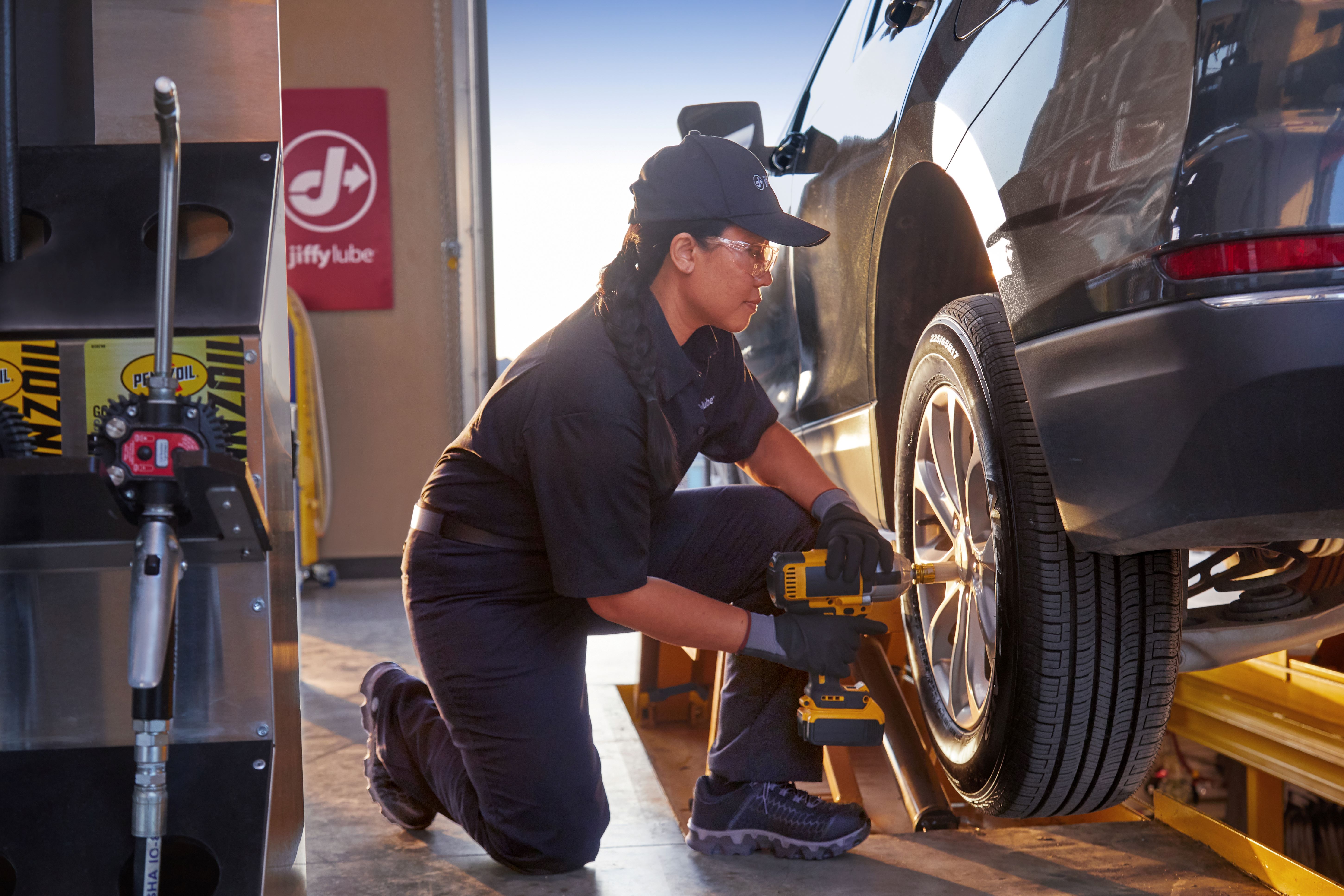Tire Service: The Impact of Weather Condition Conditions
When it involves making sure optimum efficiency and safety when traveling, recognizing the influence of weather on tire service is critical. From scorching heat to icy roadways, each climate aspect can dramatically affect tire capability and general driving experience. By delving right into the effects of differing weather on tires, chauffeurs can obtain beneficial understandings that might enhance their vehicle's efficiency and durability. In this conversation, we will certainly explore the complex partnership between climate conditions and tire solution, losing light on the value of weather-specific tire upkeep practices and factors to consider.
Warm and Tire Efficiency
When revealed to high temperatures, tires experience modifications in efficiency that can substantially influence vehicle safety and security and handling. The heat generated from long term driving or warm weather conditions creates the tire rubber to soften, causing lowered walk life and boosted wear. As the rubber ends up being softer, the tire's hold when driving reduces, affecting stopping distances and overall traction. In severe cases, excessive warm can even create tire blowouts, positioning an extreme safety and security threat to the car and its owners.

Cold Climate Impacts
Cold weather problems can have a considerable impact on tire efficiency and safety and security. In cool weather condition, tires might also lose air pressure more quickly, which can impact handling and gas effectiveness.
To reduce the impacts of winter on tires, it is vital to consistently inspect tire stress and inflate them to the producer's suggested degrees. Making use of winter season or all-season tires made for winter conditions can likewise boost grip and grasp on icy or snowy roads. Correct tire maintenance, including regular assessments for wear and damages, ends up being also extra essential during cooler months to make sure optimal performance and safety.
Rainy Issues Effect
Throughout stormy problems, tire efficiency and safety can be considerably influenced by the damp roadway surface areas and decreased visibility. The tread pattern of tires plays a vital duty in preserving traction on wet roads. Tires with damaged treads are a lot more prone to hydroplaning, where a layer of water accumulates between the tire and the roadway surface, resulting in loss of traction. To battle this, drivers should on a regular basis evaluate their tires for appropriate tread deepness and think about buying tires particularly developed for damp conditions.
Furthermore, wet weather can likewise lower presence, making it testing for chauffeurs to see the roadway ahead clearly (GMC Tire Service). In such problems, it is important to change driving rates accordingly and keep a safe following distance to permit sudden quits. Correctly filled with air tires can additionally aid in preserving control on damp roads by giving much better handling and grip
Snow and Tire Safety And Security
Snow-covered roadways present distinct challenges for drivers, stressing the importance of correct tire option and maintenance. When driving in snowy problems, having the right tires can make a significant distinction in safety and security and efficiency. Winter season tires are made with unique rubber compounds browse around these guys and tread patterns to offer far better traction on snow and ice compared to all-season tires. The deeper treads and sipes of wintertime tires help grasp the roadway much better, decreasing the threat of sliding and gliding.

In addition, drivers need to consider setting up tire chains in extreme snowy problems. Tire chains supply additional traction by grasping the snow and ice, enhancing security and control. Nevertheless, it is crucial to comply with supplier instructions when using and mounting tire chains to avoid damage to the tires and car. By picking the best tires, keeping proper inflation, and thinking about extra grip help like tire chains, motorists can improve their security when navigating snow-covered roadways.
Weather-Related Tire Upkeep
When faced with numerous climate condition, proper tire maintenance becomes an essential element of vehicle security and efficiency. Weather-related tire upkeep includes a variety of practices intended at guaranteeing ideal tire feature and longevity in different climate scenarios. One essential element of weather-related tire upkeep is tire stress law. Varying temperatures can trigger tire stress to differ, influencing traction and fuel effectiveness. On a regular basis checking and changing tire see pressure according to manufacturer recommendations is essential for secure driving in altering weather. Additionally, tire walk deepness plays a considerable duty in taking care of different climate aspects. Tires with ample tread deepness offer better hold on wet or icy roads, decreasing the danger of hydroplaning or skidding. When tread wear gets to a certain depth is essential for maintaining grip and stability in negative weather condition, checking tire walk frequently and changing tires. By prioritizing weather-related tire upkeep, drivers can boost security, enhance car efficiency, and lengthen the life expectancy of their tires.
Conclusion
In conclusion, climate problems have a considerable effect on tire efficiency and security. From heat affecting tire pressure and use to cool climate reducing traction, hop over to these guys it is crucial to consider the weather when preserving and making use of tires.
In this conversation, we will check out the complex partnership in between climate conditions and tire service, dropping light on the relevance of weather-specific tire upkeep practices and considerations.
